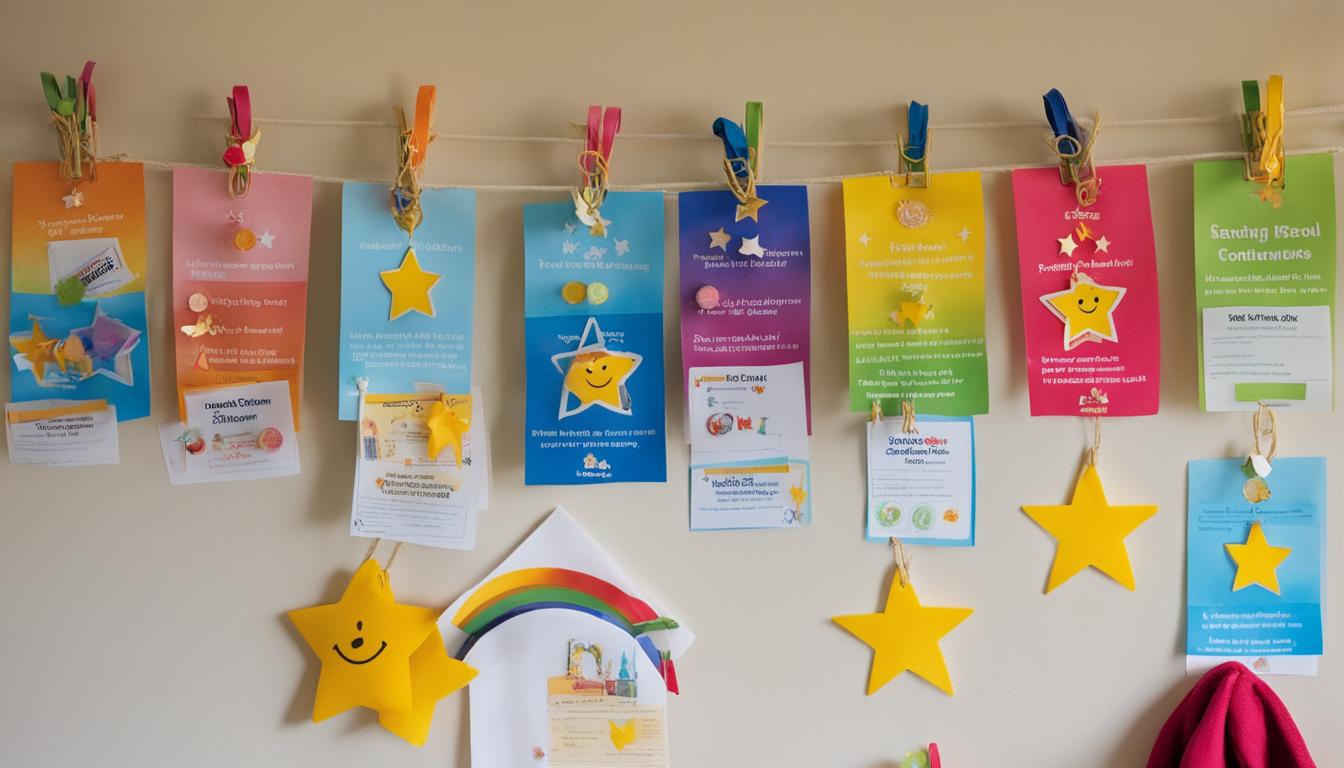7 Tips for Managing Work-Life Balance as a Parent Effectively
Maintaining a work-life balance is a daunting process for working parents. According to a new study from the University of Manchester, working women with two children are 40% more stressed due to the pressures of multiple responsibilities. Balancing work and personal life is not easy, but it is achievable. In this article, I will share 7 tips for parents to effectively manage their work-life balance and reduce stress in their day-to-day lives.
Key Takeaways:
- Tip 1: Prioritize your tasks and implement time management strategies like time blocking or time-boxing.
- Tip 2: Allocate dedicated family time to strengthen bonds and raise responsible children.
- Tip 3: Maintain open communication with your spouse and employer to negotiate for flexible work arrangements.
- Tip 4: Involve your kids in household chores to teach them responsibility and share the load.
- Tip 5: Set boundaries, learn to say “no,” and prioritize self-care to avoid burnout and reduce stress.
Benefits of a Healthy Work-Life Balance
Achieving a healthy work-life balance offers numerous advantages that can positively impact every aspect of our lives. By prioritizing our personal well-being along with our professional commitments, we can experience reduced stress levels, improved physical and mental health, increased productivity, and stronger relationships.
When we maintain a balance between work and personal life, we are better equipped to manage stress effectively. By reducing the pressures and demands on our time, we can prevent burnout and fatigue, ultimately leading to improved overall well-being.
“Balancing work and personal life supports company profitability by improving employee engagement and performance.”
Research has shown that a healthy work-life balance also has a direct impact on our physical and mental health. When we prioritize time for activities such as exercise, self-care, and pursuing hobbies, we can experience improved physical fitness and enhanced mental clarity.
Additionally, maintaining a healthy work-life balance allows us to build stronger relationships with our loved ones. By dedicating quality time to our families and friends, we can foster deeper connections and create cherished memories together.
Make Time Management a Priority
When it comes to managing work and personal life as a parent, effective time management is crucial. By prioritizing tasks and implementing various time management strategies, you can have better control over your schedule and enjoy more satisfying time with your family.
One way to prioritize tasks is by using a family planner. This can help you keep track of everyone’s schedules, appointments, and important deadlines. By having a centralized system, you can easily identify any conflicts or overlaps and make adjustments accordingly. Additionally, you can use time blocking or time-boxing techniques to allocate specific time slots for different activities. This helps create structure and ensures that you have dedicated time for work, family, and personal activities.
Remember, effective time management isn’t just about getting more tasks done in less time. It’s about finding a balance that allows you to prioritize what’s truly important and meaningful to you. By making time management a priority, you can create a harmonious work-life balance that benefits both you and your family.
Creating a Daily Routine
One effective time management strategy is to create a daily routine that incorporates both work and personal responsibilities. This helps establish a sense of structure and predictability, making it easier to manage your time effectively. Start by identifying your most important tasks and allocating dedicated time slots for them. Prioritize tasks based on their urgency and importance, and be sure to leave some buffer time for unexpected or unplanned events. A well-structured routine can help you stay focused, reduce stress, and ensure that you have enough time for both work and family.
Eliminating Time-wasting Activities
In today’s digital age, it’s easy to get distracted by social media, emails, and other non-essential activities. To make the most of your time, it’s important to identify and eliminate time-wasting activities. Set boundaries for how much time you spend on social media or browsing the internet, and consider using productivity tools or apps to help you stay focused. By eliminating distractions and being mindful of how you spend your time, you can make room for more meaningful and productive activities.
Delegate and Outsource
As a parent with multiple responsibilities, it’s important to recognize that you can’t do everything on your own. I like delegating tasks and outsourcing certain responsibilities can help relieve some of the pressure and free up valuable time. Consider involving your spouse or children in household chores and other family responsibilities. This not only teaches them important life skills but also allows you to share the workload. Additionally, you can explore hiring professional help for tasks like cleaning or childcare when needed. Remember, asking for support is not a sign of weakness but a smart way to manage your time effectively.
Prioritize Family Time

Research shows that when both parents are busy with work and unable to devote dedicated time to their kids, it negatively impacts the children’s well-being and increases the risk of behavioral problems. Therefore, it’s important for working parents to prioritize family time. Spending quality time with family helps in strengthening family bonds and raising happy, healthy, and responsible kids.
Family time allows parents and children to connect on a deeper level, fostering open communication and trust. It provides an opportunity to engage in activities together, such as family outings, game nights, or regular meal times, where everyone can share their experiences and emotions. By actively participating in their children’s lives, parents can better understand their needs, interests, and challenges.
“Family is not an important thing, it’s everything.” – Michael J. Fox
Setting aside dedicated time for family activities also allows parents to be positive role models and teach valuable life lessons. It provides an opportunity to instill important values, such as empathy, respect, and teamwork, in children from an early age. Moreover, regular family time can create lasting memories and traditions that children will cherish as they grow older.
Creating Meaningful Family Time
Here are some ideas to help you prioritize family time:
- Establish a regular family night, where all members come together to engage in a fun activity or have a meal.
- Plan weekend outings or day trips to explore nature, visit museums, or participate in community events.
- Designate technology-free zones or hours to encourage face-to-face interactions and quality conversations.
- Involve children in decision-making processes when planning family activities, allowing them to take ownership and feel valued.
- Encourage shared hobbies or interests, such as cooking, gardening, or playing sports, that the whole family can enjoy together.
Prioritizing family time is crucial for creating a strong support system within the family unit and nurturing the emotional well-being of each family member. By making a conscious effort to spend quality time together, working parents can strengthen family bonds, raise responsible kids, and create a positive and nurturing environment at home.
Maintain Open Communication with Your Boss and Spouse
When it comes to achieving a healthy work-life balance, open communication is key. It is crucial to maintain open lines of communication with both your boss and your spouse in order to effectively manage the demands of work and family life. By fostering open and honest conversations, you can find solutions and support that will help you maintain a harmonious work-family balance.
Create a Work-Family Balance Plan
Start by discussing your work-family balance goals with your spouse. Together, you can create a plan that outlines your priorities and identifies potential challenges. This plan should include strategies for managing conflicting schedules, making time for family activities, and ensuring adequate support for both partners. By proactively addressing these issues, you can minimize stress and conflicts, and strengthen your relationship.
Seek Employer Support
In addition to communicating with your spouse, it is important to discuss your work-family balance needs with your employer. Many companies have policies and programs in place to support employees’ personal and family needs. This may include options for flexible work arrangements, such as compressed workweeks or telecommuting, which can provide you with the flexibility you need to meet both your professional and personal responsibilities. By engaging in open dialogue with your boss, you can explore these options and work towards a mutually beneficial arrangement.
Find Spousal Support
Your spouse’s support is invaluable in maintaining a healthy work-family balance. By sharing your challenges, concerns, and successes with each other, you can better understand each other’s needs and provide the necessary support. Whether it’s splitting household chores, coordinating schedules, or taking turns with childcare responsibilities, working together as a team can help lighten the load and create a more balanced and fulfilling family life.
Involving Your Kids in Household Chores

Managing multiple responsibilities as a working parent can be overwhelming, but involving your kids in household chores is a great way to teach them responsibility and lighten your load. By dividing responsibilities and working together as a family, you not only instill important values in your children but also create a stronger sense of unity and cooperation.
When assigning chores, it’s important to consider age-appropriate tasks. Younger children can help with simple tasks like picking up their toys or setting the table, while older kids can take on more responsibility such as doing the dishes or folding laundry. By involving your kids in these everyday tasks, they learn valuable life skills and develop a sense of pride in their contributions.
In addition to teaching responsibility, involving your kids in household chores also fosters a sense of teamwork. As you work together, you can bond over shared experiences and create lasting memories. It’s an opportunity to have meaningful conversations, share laughter, and enjoy each other’s company. So, let’s encourage our kids to chip in and create a harmonious balance between work and family life.
Set Boundaries and Learn to Say “No”
Setting personal and professional boundaries is essential for maintaining a successful work-life balance. Without clear boundaries, it’s easy to become overwhelmed and experience burnout. By establishing limits, you can better prioritize your time and energy, reducing professional stress and creating space for personal well-being. Learning to say “no” when necessary is an empowering way to protect your boundaries and avoid taking on more than you can handle.
“Your time and energy are valuable resources. It’s important to protect them by setting boundaries and saying no to things that don’t align with your priorities.”
Boundaries can take many forms, such as designating specific work hours, avoiding work-related communication outside of those hours, or setting limits on the number of tasks or commitments you take on. By communicating these boundaries clearly to your colleagues and clients, you can manage expectations and create a healthier work environment. Remember, it’s okay to prioritize your well-being and take care of yourself.
In addition to setting boundaries with work, it’s also important to establish boundaries in your personal life. This may involve carving out dedicated family time, limiting screen time, or creating a quiet space for relaxation and self-care. By honoring these boundaries, you can create a better balance between your professional and personal responsibilities, ultimately reducing stress and improving your overall quality of life.
Protect Your Time and Energy
One of the main benefits of setting boundaries and learning to say “no” is the ability to protect your time and energy. By saying “no” to tasks or commitments that don’t align with your priorities, you free up valuable resources to focus on what truly matters to you. This can lead to increased productivity, better work-life balance, and a greater sense of fulfillment in both your personal and professional life.
- Identify your priorities: Take the time to assess what truly matters to you in both your work and personal life. This will help you align your boundaries with your values and make more informed decisions.
- Practice self-awareness: Tune in to your own needs and limitations. Recognize when you’re reaching your capacity and don’t be afraid to say “no” when necessary. It’s not selfish; it’s self-care.
- Communicate assertively: Clearly communicate your boundaries to others, whether it’s your boss, colleagues, or loved ones. Be firm but polite, explaining your limitations and the reasons behind your decisions.
Remember, setting boundaries and saying “no” are essential skills for maintaining a healthy work-life balance. By protecting your time and energy, you can reduce professional stress, avoid burnout, and create a more fulfilling and sustainable lifestyle.
Ask for Support and Take Care of Yourself
Building a support system is essential for managing the demands of work and family life. Surrounding yourself with friends, family, and neighbors who can offer assistance and lend a listening ear can make a world of difference. Whether it’s carpooling with other parents or reaching out for help when you need it, having a support network can alleviate some of the stress and help create a more balanced lifestyle.
Consider hiring professional help for tasks that take up too much of your time and energy. Whether it’s hiring a cleaning service or a babysitter, outsourcing certain responsibilities can free up valuable time for self-care and quality moments with your loved ones. It’s not about doing everything yourself—it’s about finding the right balance and prioritizing what truly matters.
Don’t forget to take care of yourself. Self-care is vital for maintaining your physical, mental, and emotional well-being. Set aside time for activities that recharge your batteries, whether it’s exercising, reading a book, practicing mindfulness, or simply taking a long, relaxing bath. Remember, taking care of yourself is not selfish—it’s necessary for your overall happiness and ability to show up for your family and work.
Lastly, cherish and enjoy moments of togetherness with your loved ones. Life can get busy, but it’s important to carve out quality time with your family. Whether it’s going on a weekend outing, having a family game night, or simply sharing a meal together, these moments create lasting memories and strengthen your relationships. Make it a priority to be fully present and enjoy the precious moments with the people who matter most.
FAQ
What are the benefits of maintaining a healthy work-life balance?
Maintaining a healthy work-life balance reduces stress, fatigue, and the risk of burnout. It improves physical and mental health and leads to better relationships with family, friends, and co-workers. It also supports a company’s profitability by improving employee engagement and boosting performance.
How can I manage my time effectively as a working parent?
Prioritizing tasks and implementing time management strategies such as using a family planner, time blocking, or time-boxing techniques can help working parents have better control over their schedules and enjoy more satisfying time with their families.
How important is family time for working parents?
Spending quality time with family is crucial for working parents. It strengthens family bonds and helps in raising happy, healthy, and responsible kids. Research shows that when both parents are busy with work, it negatively impacts the children’s well-being and increases the risk of behavioral problems.
How can I maintain open communication with my spouse and boss?
Healthy and open communication is essential for maintaining a work-life balance. Discuss work-related and family problems with your spouse, and create actionable plans together. Similarly, discussing work pressure and family responsibilities with your boss can help in negotiating for family-friendly arrangements such as flexible work hours or working from home.
How can I involve my kids and delegate household chores?
Involving kids in household chores and delegating age-appropriate responsibilities can help in managing multiple personal and professional responsibilities. Kids can learn responsibility and feel more connected to the family by contributing to routine household tasks. For example, toddlers can be taught to keep their empty food plates away, while older kids can help with setting up the dinner table.
How can I set boundaries and avoid burnout?
Setting personal and professional boundaries is essential for avoiding burnout and maintaining a successful work-life balance. It is important to turn off work-related notifications when at home and prioritize self-care. Learning to say “no” and understanding one’s individual limitations are crucial for avoiding unnecessary stress and focusing on what truly matters.
What should I do to ask for support and take care of myself?
Building a support system consisting of friends, family, and neighbors is important for managing multiple tasks and responsibilities effectively. Parents can also consider hiring professional services for cleaning or childcare when needed. Taking care of oneself through self-care rituals, hobbies, and time alone is essential for maintaining overall well-being. Ultimately, achieving work-life balance is about cherishing small victories and enjoying moments of togetherness with loved ones.
Source Links
- https://www.linkedin.com/pulse/7-essential-tips-maintain-work-life-balance-
- https://www.carizon.ca/looking-better-manage-work-family-life-2014-try-12-tips/
- https://raisingchildren.net.au/grown-ups/work-child-care/worklife-balance/work-life-balance








